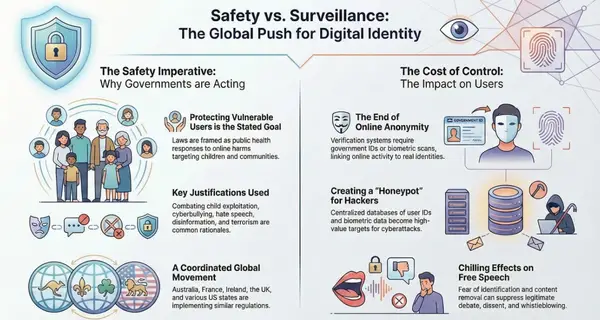The White House Influencer Pipeline: How the Biden Administration Revolutionized Government Communications Through Social Media

An investigation into unprecedented access, undisclosed payments, and the regulatory void governing political influencer marketing
Executive Summary
Between 2022 and 2024, the Biden administration pioneered an unprecedented strategy of engaging social media influencers to amplify its messaging to younger audiences. While the White House provided access rather than direct payments, a complex network of Democratic political organizations, PACs, and marketing firms channeled millions of dollars to content creators—often without clear disclosure to their audiences. This investigation reveals the infrastructure behind this strategy, the regulatory loopholes that enable it, and the broader implications for democratic transparency.
The White House Opens Its Doors
On March 11, 2022, thirty TikTok influencers joined a Zoom call that would signal a new era in government communications. White House press secretary Jen Psaki, along with National Security Council staffers, briefed these content creators—many with follower counts in the hundreds of thousands—on the United States' strategic goals regarding Russia's invasion of Ukraine.
The meeting wasn't a one-off experiment. It was the opening salvo in what would become the most extensive government-influencer engagement program in American history.
By April 2023, hundreds of influencers had received special access to the Biden White House. They attended State of the Union watch parties, received Roosevelt Room briefings on the Inflation Reduction Act, and were invited to South Lawn celebrations. Rob Flaherty, the White House director of digital strategy, was elevated to assistant to the president—the same rank as the communications director and press secretary—a clear signal of the administration's priorities.
"We're trying to reach young people, but also moms who use different platforms to get information and climate activists and people whose main way of getting information is digital," explained Jen O'Malley Dillon, White House deputy chief of staff, in April 2023.
The strategy made political sense. According to Pew Research, by 2023, about one-third of Americans aged 18-29 reported getting their news from TikTok, up from just 3% in 2020. Among all Americans, 14% were getting news from the platform. Young voters had preferred Biden over Trump by a 26-point margin in 2020, and Democrats had maintained a 28-point advantage with this demographic in the 2022 midterms.
All social media influencers being paid by the Israeli government or ANY foreign government to promote a foreign country and a foreign country’s interests, must register under the Foreign Agents Registration Act (FARA) under the DOJ.
— Rep. Marjorie Taylor Greene🇺🇸 (@RepMTG) October 1, 2025
“Foreign governments routinely engage in… https://t.co/lT4ZyckVL9 pic.twitter.com/AmSxqQ1lbG
The Influencers: A New Press Corps
The creators given White House access represented a diverse array of content styles and audiences:
Harry Sisson, a 20-year-old NYU student who broke down daily news on TikTok, became one of the most visible faces of the program. With over 680,000 TikTok followers and 140,000 on Twitter, Sisson attended multiple White House events and even advocated for influencers to receive their own press briefing passes.
V Spehar, who hosts "Under The Desk News" to 2.7 million TikTok followers, received what they described as "a magical email" inviting them to a creator briefing on the Inflation Reduction Act. President Biden himself dropped by the Roosevelt Room gathering.
Vivian Tu, a former Wall Street trader who discusses financial topics in short clips, was among those granted access, as was Kahlil Greene, known as the "Gen-Z Historian" on social media.
The White House explicitly told these influencers they weren't expected to become "Biden administration propagandists," according to Flaherty. "But we want to make sure that they have the best information that they can get and be able to ask questions, just like reporters would, to be able to inform their audiences."
Yet the line between providing information and shaping narrative proved difficult to discern. At the Detroit Auto Show in September 2022, officials invited Daniel Mac—whose 13.8 million followers watch him ask drivers of nice cars what they do for a living—to interview Biden. The resulting video, featuring Biden in aviator sunglasses behind the wheel of a Cadillac LYRIQ promoting electric vehicles, garnered 38 million views.
Was this journalism? Marketing? Something in between?

The Payment Pipeline: Following the Money
The White House and Biden campaign consistently maintained that these influencers were "unpaid, independent content creators." As PBS NewsHour reported in March 2024, "The Biden campaign told 'NewsHour' that they aren't currently paying influencers for their content."
But that narrative obscured a more complex financial landscape.
The DNC Connection
In May 2023, the Daily Caller published Federal Election Commission records revealing that the Democratic National Committee had paid $210,000 to Palette Media, a talent management agency, during the 2022 election cycle. Palette managed several prominent pro-Biden influencers, including Harry Sisson and Chris Mowrey.
The payment structure raised questions: Did the DNC pay Palette for general social media services, or specifically for influencer content? The timing was notable—Sisson began working for Palette in October 2022, the same month the DNC gave Palette $200,000 for "paid media."
FEC records also showed that Sisson himself received $6,000 from MeidasTouch, a well-known Democratic Super PAC, for "social media consulting" in August and October 2022, just ahead of the midterm elections.
When comedian Tim Dillon directly asked Sisson and Mowrey if they were paid by the DNC, Sisson called it "just like a conspiracy" while admitting they "should be first in line" for DNC paychecks because of their Biden support.
The Marketing Firm Ecosystem
Beyond direct political committee payments, an entire ecosystem of progressive marketing firms emerged to connect causes and candidates with influencers:
Social Currant paid out more than $1 million to influencers in 2023 alone, according to CEO Ashwath Narayanan. The company reported that 70% of the creators it worked with were "from outside the political space," aiming to bring non-political voices into progressive advocacy.
atAdvocacy, a political influencer marketing firm, worked with environmental awareness client Evergreen Action to pay influencers—including some who posted about pushing Biden to the left on climate issues. Stuart Perelmuter, the CEO, told Semafor his organization reaches "tens of millions every single day" through influencers.
Priorities USA, a major Democratic super PAC, spent $1 million on influencer content from 150 creators while Biden was the presumptive nominee in 2024.
In the 2022 midterm elections alone, progressive super PACs American Bridge and NextGen each spent six figures on influencer partnerships.
The Dark Money Dimension
By August 2025, reporting revealed an even more opaque layer: the Sixteen Thirty Fund, a major "dark money" group that had poured $400 million into left-leaning causes during the 2020 cycle, was funneling money to influencers through Chorus, a nonprofit arm of an influencer agency.
Content creators including Olivia Julianna (644,000 TikTok followers), Suzanne Lambert (the "Regina George liberal"), and Arielle Fodor (1.4 million TikTok followers) were tied to this program. Some influencers reportedly received up to $8,000 per month.
The Washington Post investigation in October 2024 characterized these payments as operating in a "regulatory vacuum," with campaigns and PACs "funneling record funds into social media firms that work with creators" while disclosure requirements remained murky at best.
The Regulatory Black Hole
Perhaps the most striking aspect of the influencer-payment ecosystem is not that it exists, but that it operates in what amounts to a regulatory blind spot—one that federal officials have been aware of but have chosen not to address.
The FEC's Decision Not to Regulate
In December 2022, the Federal Election Commission adopted new rules for internet-based political advertising, updating regulations that had been unchanged since 2006. The updated rules required disclaimers on paid political ads placed on digital platforms.
But the FEC explicitly punted on the influencer question. The Commission invited public comment on whether disclaimers should be required when "a social media influencer or other person is paid to create or generate content containing express advocacy or solicit contributions."
By December 2023, Axios reported the answer: "The FEC is not expected to require disclosure when social media influencers are paid to promote political causes and candidates, per a draft final rule published by the agency."
The decision left a stark discrepancy in place: influencers must disclose when they're paid to promote commercial products under FTC rules, but face no such requirement when promoting political candidates or causes—arguably a more consequential form of persuasion.
As legal analysts at Galkin Law explained: "The FTC oversees commercial transactions, which means if an influencer is paid to promote a product or brand, they must disclose it with labels like #ad or #sponsored. However, when it comes to political endorsements, the FTC's role ends, and the FEC steps in. But unlike the FTC, the FEC doesn't require influencers who are paid to support candidates or political issues to disclose these financial ties."
Why the Gap Exists
The regulatory void stems from jurisdictional definitions that predate the social media age. The FTC's mandate covers commerce—not politics. The FEC regulates "public communications," a term traditionally applied to broadcast ads, billboards, and direct mail.
Social media posts by influencers don't neatly fit either category. They're not traditional advertisements placed "for a fee" on a platform in the way a TV commercial is. Instead, the influencer creates content for their own account, where they have an existing audience. Even if the influencer is paid to create the content, the distribution appears organic.
Two FEC commissioners who supported requiring disclosure argued that "the public should know when influencers are being paid to promote a political message" and that "paid endorsements on social media are no less influential than traditional political ads."
They lost the argument.
The Authenticity Paradox
The heart of influencer power lies in perceived authenticity. Unlike celebrity endorsements, which audiences understand as transactional, influencer content feels personal, relatable, genuine.
As University of Texas propaganda researcher Samuel Woolley explained to ProMarket in 2021: "Many influencers don't reveal they've been paid, and payments often take place off social media platforms. This amounts to a new and growing form of 'inorganic' information operations—elite-dictated propaganda through trusted social media spokespersons."
A 2020 Center for Media Engagement study put it more bluntly: "Top-down propaganda from influencers are better able to evade detection systems built to detect political bots and sockpuppets and to defy regulators concerned with digital free speech—all while using influencers' captive audiences to more effectively prey upon fraught emotions during a highly contentious election."
The ethical distinction between canvassers and influencers becomes clear through three factors:
- Scale of reach: A canvasser knocks on one door at a time. An influencer reaches thousands or millions with a single post.
- Relationship dynamics: Canvassers are strangers. Influencers have cultivated parasocial relationships with their audiences, who feel they "know" the creator personally.
- Disclosure: Canvassers identify their campaign affiliation. Influencers maintain perceived independence while receiving payment from political organizations.
Coordination Tactics: Pods, Hype Houses, and Artificial Amplification
Beyond individual payments, researchers documented more sophisticated coordination efforts designed to game social media algorithms.
Influencer Pods
"Influencer pods" are coordinated groups that systematically like, share, and retweet each other's content to create the illusion of organic popularity. During the 2020 and 2022 elections, researchers identified multiple politically-oriented pods working to amplify specific narratives.
The conservative organization Turning Point USA established an Influencer Media Program with a reported 260 influencers averaging 170,000 followers each. An affiliated group, Turning Point Action, was found by researchers to be "operating an influence operation described as among the most ambitious domestic influence campaigns discovered this election cycle."
The operation paid individuals—including minors—to use their personal accounts to spread coordinated content without disclosing affiliation or payment. Researchers found thousands of posts, replies, and comments across platforms using identical language.
Political Hype Houses
Taking coordination further, conservative creators moved into physical "hype houses"—shared living spaces where multiple influencers collaborate on content. The Conservative Hype House attracted 1.5 million followers, while the Republican Hype House garnered nearly 900,000.
These arrangements, inspired by influencer houses popularized in lifestyle and entertainment spaces, allowed for rapid content creation and cross-promotion, further amplifying reach.
The Ukraine Briefing: A Case Study
The March 2022 briefing on Ukraine offers a window into how the strategy worked in practice—and how it was perceived.
Thirty TikTok influencers joined the call, including 18-year-old Ellie Zeiler, who had 10.5 million followers. After the briefing, she posted a video asking "Why is gas so expensive?" She explained that COVID restrictions ending meant more people were driving, but then pivoted: "Russia is one of the top three producers of oil and it is actually their No. 1 revenue source. Now, with Putin starting this horrific fight between Ukraine and Russia, nobody wants to work with him and do international trade."
Marcus DiPaola, with over 3 million TikTok followers, tweeted the administration's priorities clearly: "The number one message the White House has is U.S. unity with partners & allies. The number two message is to prevent a more expansive war."
Zeiler told The Washington Post she saw herself as "a White House correspondent for Gen-Z."
Critics saw something different. A Newsweek opinion piece characterized it as the Biden administration using "TikTok influencers to peddle propaganda," noting that "the seedy and anti-democratic coalition between Big Tech and the liberal establishment and their deployment of influencers to distract from government failures will only intensify."
Conservative outlets were more direct. The Daily Mail described Biden as "cynically deploying TikTokers" to blame soaring inflation on Russia's invasion "even though it was a serious issue for months before that war began."
Saturday Night Live parodied the briefing, signaling that the strategy had entered public consciousness—though whether as innovation or farce remained unclear.
International Context: A Global Phenomenon
The Biden administration's influencer strategy wasn't occurring in a vacuum. Governments worldwide were embracing similar tactics, often with even less transparency.
The UK's Secret Influencer Program
In July 2025, Declassified UK revealed that the British government had been secretly paying foreign YouTube stars to publish what whistleblowers called "propaganda" videos. The program, coordinated by London-based Zinc Network Ltd on behalf of the Foreign Office in a deal worth nearly £10 million, recruited hundreds of internet celebrities, particularly in Central and Eastern Europe.
Crucially, influencers were required to sign non-disclosure agreements preventing them from revealing government involvement. Whitehall officials provided "feedback" on each video before publication.
One former Zinc employee described the work as "state propaganda" and accused the company of interference in foreign elections. Another called the relationship with influencers "extremely exploitative."
Russia's Influencer Operations
In September 2024, the U.S. Department of Justice charged two RT (Russian state media) employees with funneling nearly $10 million to a Tennessee-based company that contracted with American right-wing influencers. The influencers—who included prominent conservative commentators with millions of followers—said they were unaware of the Russian funding.
"The company never disclosed to the influencers or to their millions of followers its ties to RT and the Russian government," Attorney General Merrick Garland stated.
The operation demonstrated what disinformation expert Renée DiResta called a sophisticated strategy: "Buying authentic influencers is a far better use of funds than creating fake personas, because they bring their own trusting audiences and are actually, you know, real."
The Bipartisan Reality (With Partisan Differences)
While the Biden administration's influencer program garnered significant attention, both parties have embraced social media creators—though with different approaches.
Republican Influencer Infrastructure
Donald Trump's 2020 campaign paid Legendary Campaigns (partner organization of Urban Legend) $1 million for online advertising. The Make America Great Again PAC continued payments for influencer marketing between election cycles.
Conservative media personalities like Charlie Kirk, Candace Owens, and Ben Shapiro have attracted millions of followers, building brands around their political beliefs rather than lifestyle content that occasionally includes politics.
Trump himself has cultivated influencer status, retweeting thousands of followers' posts, promoting follower-generated content, and granting prized endorsements. During the 2024 campaign, he appeared with influencers like Jake and Logan Paul and Adin Ross, capitalizing on young male audiences that had become increasingly conservative.
The Democratic Micro-Influencer Strategy
Democrats, by contrast, focused more heavily on what one Biden digital staffer called "micro- and nano-influencers"—creators with thousands rather than millions of followers, who could "target a particular demographic" and "geotarget in the battleground state where the race is really tight."
Biden's 2020 campaign worked with influencer firm Village Marketing and established a micro-influencer program for deeply engaged smaller followings. As president, Biden continued this approach, with four White House digital staffers focused specifically on influencers and independent content creators.
The strategy reflected a Democratic Party playing catch-up. As Biden deputy campaign manager Rob Flaherty acknowledged in 2023, conservatives had "scaled up their influencer ecosystem" more quickly and comprehensively.
The Backlash: When Influencers Turn
By late 2023 and into 2024, some influencers who had initially collaborated with the White House were expressing disillusionment—particularly over the administration's handling of the Israel-Gaza conflict.
Ashley Renne, who had enthusiastically posted about meeting Biden and the Inflation Reduction Act in September 2022, told CNN by December 2023 that her excitement was waning. "There is a big disconnect between what I see the government is doing and what the people want," she said, encouraging followers to research third-party candidates.
"Influencers played a huge role in getting him elected the first time because of our ability to reach younger audiences," Renne explained. "However, if the president is relying on influencers this time around, he's going to have a tough time considering the state of the country right now and their disappointment in his administration at the moment."
Others claimed the White House only engaged with supportive voices. "Some creators claimed that the White House interacted only with influencers who were pro-Biden—not those who had voiced criticism of his policies, especially around issues like the Israel-Hamas war," Axios reported in January 2025.
Ethical Implications and Democratic Concerns
The rise of paid political influencers raises fundamental questions about democratic transparency and informed citizenship.
The Trust Deficit
Research by the University of Washington and other institutions has documented how influencers leverage parasocial relationships—the one-sided emotional connections audiences feel toward media personalities—to build credibility.
When mothers who share parenting tips suddenly start posting about political issues without disclosing financial relationships with advocacy groups or PACs, their audiences may believe they're witnessing authentic opinion shifts rather than paid messaging.
"Trust is the cornerstone of any government's relationship with its citizens," noted one media ethics analysis. "When people discover that endorsements are paid and not genuine, it erodes their trust in the government's communications and its overall integrity."
The Propaganda Question
Multiple scholars and researchers have used the term "propaganda" to describe paid influencer political content—a characterization that makes communications officials bristle but that reflects serious academic concerns.
A 2025 academic paper titled "Sponsored by the State" examined government influencer collaborations globally, concluding: "Although entrenched in promoting the public good and facilitated by public funding, the dynamics of these collaborations remain very much unknown. Shedding light on how governments employ influencers can help us understand how commercial strategies shape the advertising of public goods as state propaganda."
The paper continued: "Without a clear demarcation between advertising and non-advertising content, social media conflates political, commercial, and social content altogether, providing the same architecture to be used by the same voices creating the same content for the same users. The only difference is who pays for it."
Samuel Woolley's research team at the Center for Media Engagement concluded: "Such influencers, far from being 'volunteer digital door knockers,' are paid, highly organized surrogates of political campaigns failing to report this new mode of politicking."
Resource Allocation Concerns
Critics argue that using funds—whether from PACs, dark money groups, or party committees—to pay influencers represents a misallocation of political resources.
"Using public funds to pay influencers and actors for endorsements diverts resources from essential public services," one media ethics commentary noted, though it's worth clarifying that the payments came from political organizations rather than government appropriations.
Still, the question remains: In an era when political campaigns constantly claim they need more funding for voter outreach, field operations, and advertising, does paying influencers represent effective resource deployment or a wasteful embrace of trendiness?
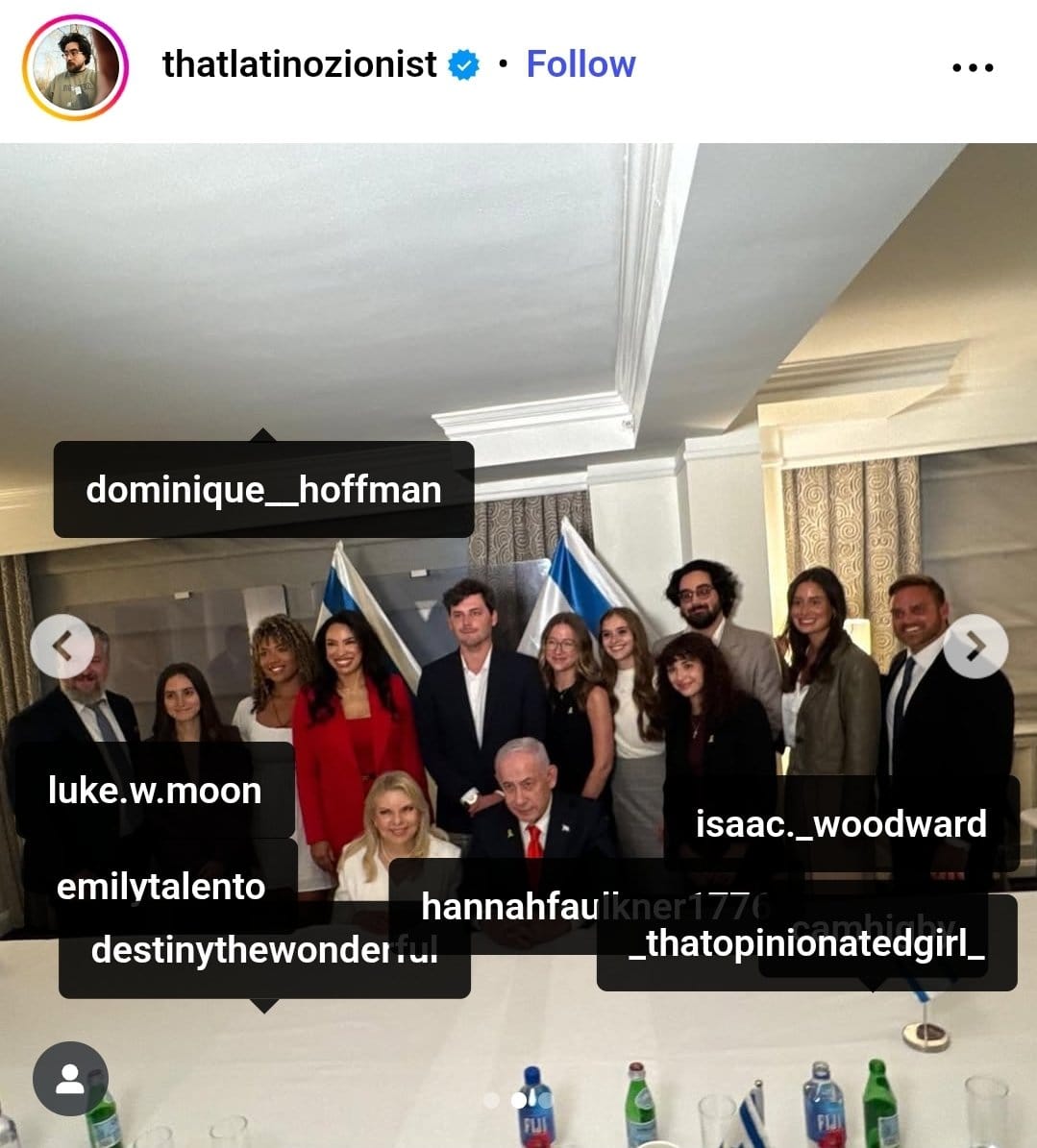
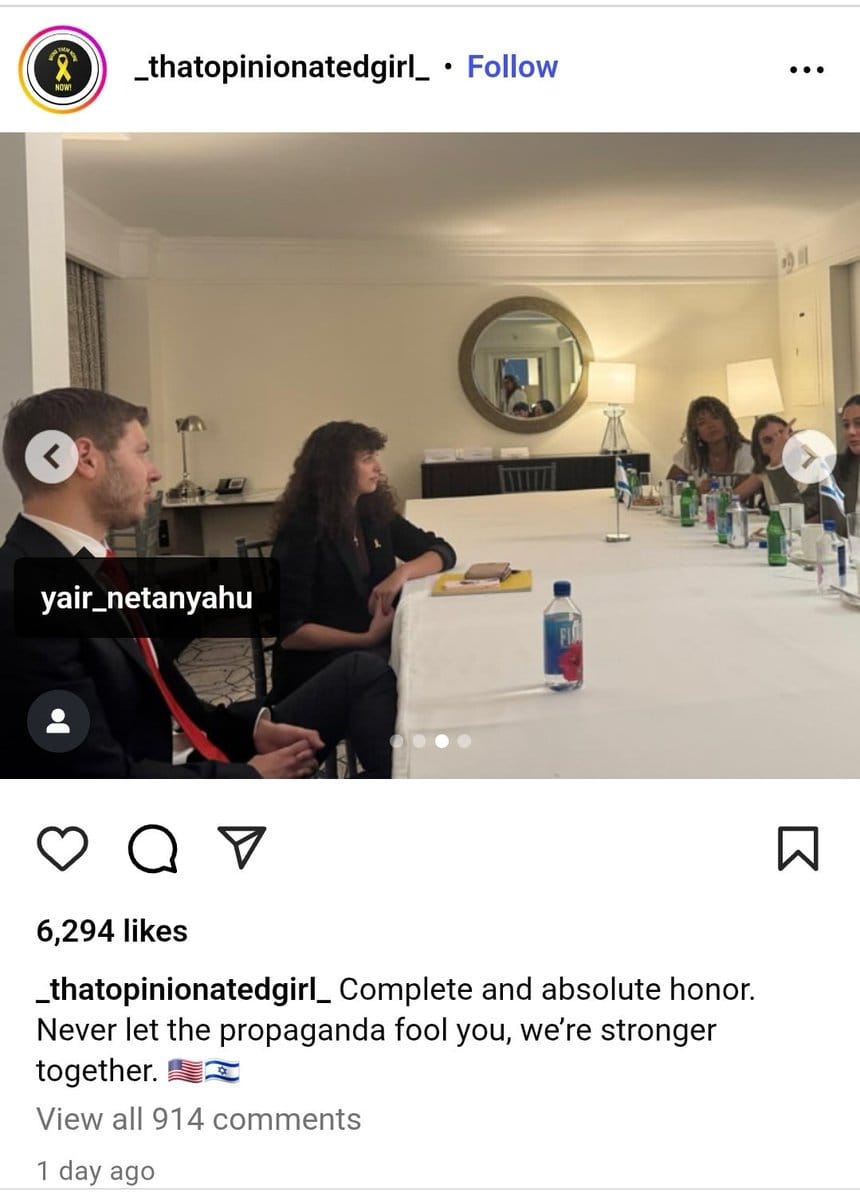
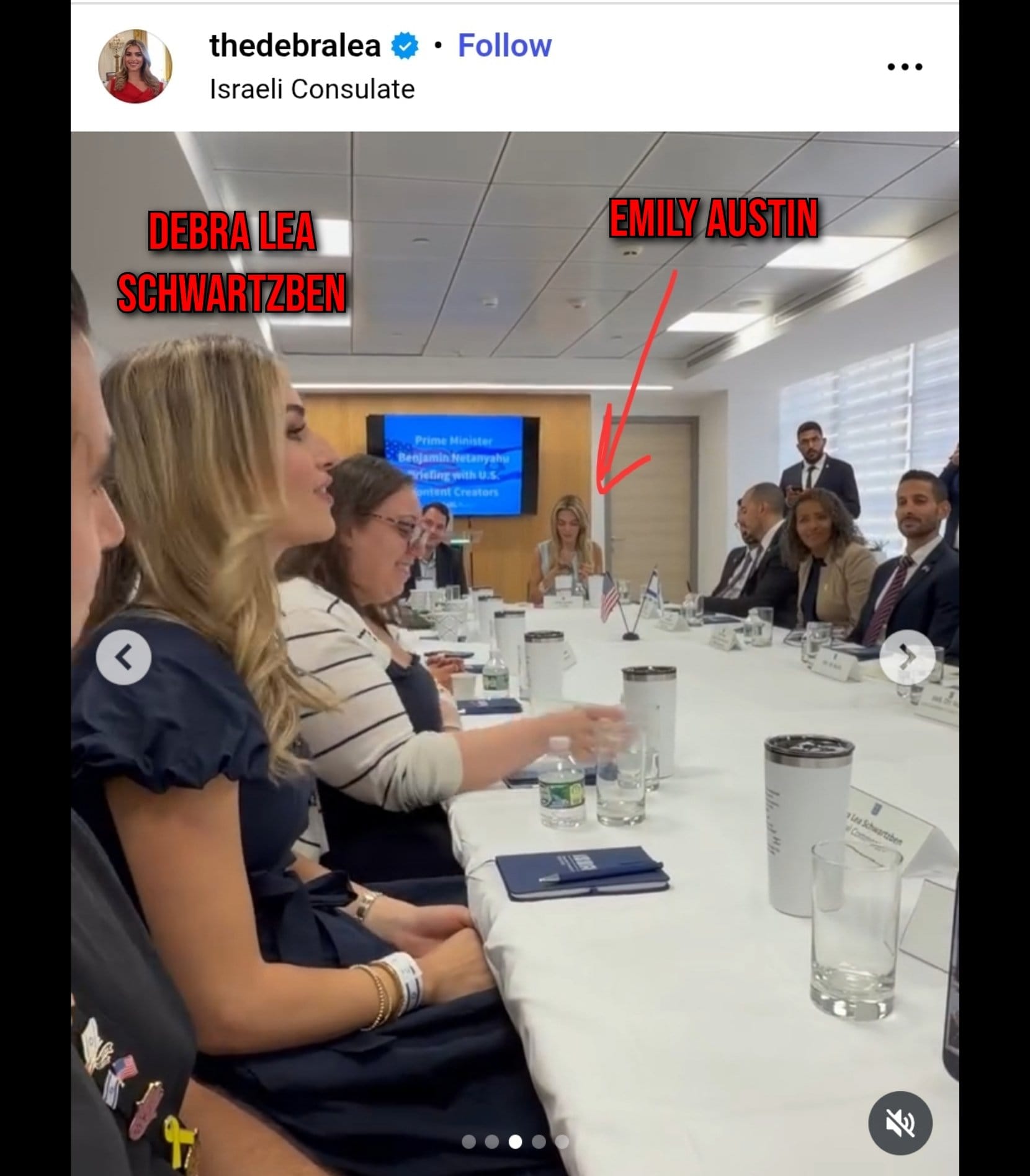
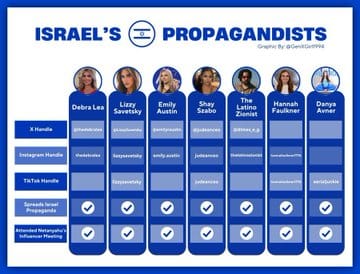
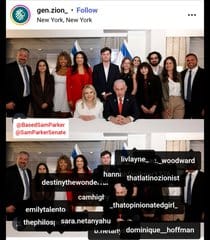

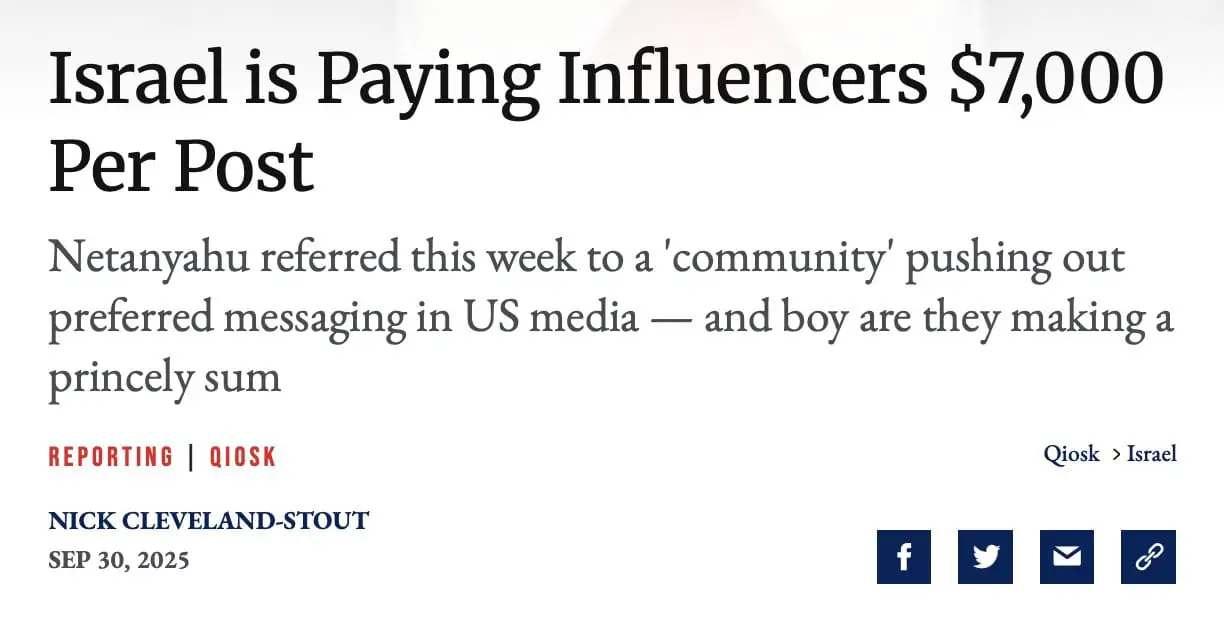
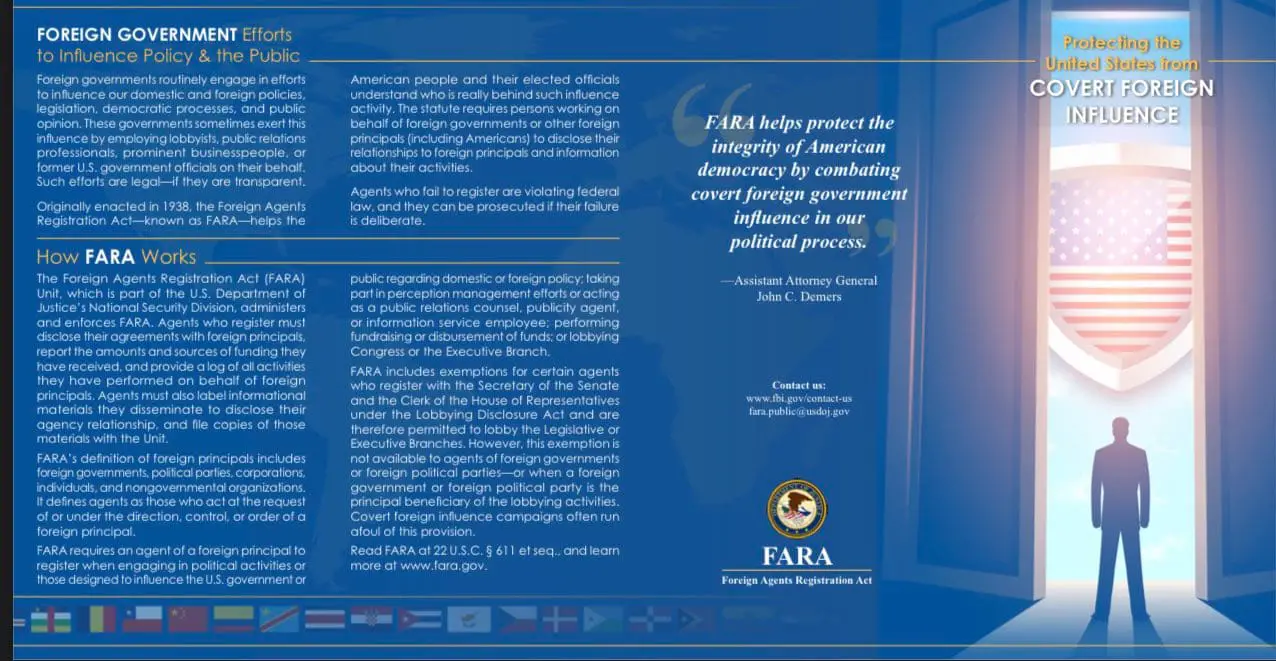
Platform Response: Where Are the Tech Companies?
Notably absent from much of the influencer-payment debate has been meaningful intervention from social media platforms themselves.
Major platforms like TikTok, Instagram, YouTube, and Facebook have extensive policies governing political advertising on their services. Traditional political ads must be labeled, and in many cases, platforms maintain public databases of political ad spending.
But influencer content exists in a gray zone. When a creator posts content to their own account—even if they were paid by a political organization to create it—platforms generally don't classify it as a political advertisement requiring disclosure.
The platforms have largely taken the position that enforcement of political disclosure requirements is the purview of government regulators, not private companies. Yet with the FEC explicitly declining to regulate this space, no entity is actually ensuring transparency.
Some platform-specific considerations:
TikTok was simultaneously being used by the Biden administration to reach young voters while facing existential threats from Congress over national security concerns. This created what one observer called a "tricky spot" for Democrats who "want access to the young audiences using TikTok to create content to spread their message."
Meta platforms (Facebook and Instagram) have struggled with political content moderation generally. Adding influencer payment disclosure to that mix would require substantial policy development and enforcement mechanisms the company has shown little appetite for.
YouTube allows creators to mark their videos as containing paid promotion, but doesn't require it for political content and doesn't verify creator claims.
Damn.. they worked fast.
— Shipwreck (@shipwreckshow) September 27, 2025
Tiktoker talks about her meeting with Netanyahu from yesterday and says AIPAC (essentially) is not the villain..... pic.twitter.com/hQnI8RfZqB
The Israel Factor: A Foreign Government's Influence Operation on American Social Media
While much attention has focused on domestic political campaigns paying influencers, a parallel—and potentially more legally problematic—operation has emerged: the Israeli government's systematic campaign to pay American influencers to shape U.S. public opinion.
Netanyahu's Explicit Admission
On September 27, 2025, Israeli Prime Minister Benjamin Netanyahu met with approximately 15 American pro-Israel influencers at the Israeli Consulate in New York, following his address to the United Nations General Assembly. What he told them sent shockwaves through media and policy circles.
In a video posted by influencer Debra Lea that quickly went viral, Netanyahu described social media as "the most important weapon" to "secure our base in the US." He specifically identified TikTok as "the most important purchase going on right now," suggesting that gaining influence over the platform "could be consequential."
"We have to fight back. How do we fight back? Our influencers," Netanyahu said. "I think you should also talk to them if you have a chance, to that community, they are very important."
He added: "We have to fight with the weapons that apply to the battlefields in which we're engaged in and the most important ones are on social media."
Netanyahu also mentioned X (formerly Twitter): "We have to talk to Elon [Musk]. He's not an enemy, he's a friend."
The Israeli leader's remarkably candid acknowledgment of social media as a "weapon" and influencers as strategic assets in what officials have called the "eighth front" of Israel's current conflicts represented an unprecedented public admission of state-sponsored influence operations targeting American audiences.
The Esther Project: $900,000 for Influencer Posts
Just days before Netanyahu's influencer meeting, newly filed documents with the U.S. Department of Justice under the Foreign Agents Registration Act (FARA) revealed the financial infrastructure behind Israel's influencer strategy.
Bridge Partners LLC, a firm formed in June 2025 in Delaware by Israeli consultants Uri Steinberg and Yair Levi, registered as a foreign agent working for Israel's Ministry of Foreign Affairs. The company disclosed a contract titled the "Esther Project"—a $900,000 influencer campaign running from June through November 2025.
According to the FARA filings and attached invoices sent to Havas Media Group Germany (the international media conglomerate coordinating Israel's broader PR efforts), the payment structure breaks down as follows:
Israel: DOJ FARA Filing Reveals Paid US Influencer Campaign
— GenXGirl (@GenXGirl1994) October 1, 2025
Israel’s Esther Project
- Jun-Dec 2025 Budget: $900K
- Influencer Post Req.: 25-30/month
- Posts are directed by Israel (see list of likely Influencers)
Influencers in this program are violating FARA
Influencers work… pic.twitter.com/0tUM3AwWPQ
Budget allocation:
- $60,000 in upfront payments for influencer recruitment and concept development
- $140,000 in development-phase payments as 5-6 influencers began posting
- Monthly allocations up to $250,000 for influencer fees, production, and agency costs
- $50,000 for wrap-up and post-campaign reporting
After subtracting administrative costs (legal fees, banking fees, marketing fees, and project services) totaling approximately $347,000, that left an estimated $552,946 specifically for influencer payments between June and September 2025.
The math reveals staggering per-post rates:
- Bridge Partners estimated 75-90 posts would be produced during this period
- Low end: $6,143 per post
- High end: $7,372 per post
The campaign targeted 14-18 influencers, each expected to produce 25-30 pieces of content per month across Instagram, TikTok, and other platforms. The operation was structured in phases, with 3-6 influencers onboarded at a time, later expanding to include "matching with Israeli content partners" and developing partnerships with U.S.-based marketing agencies.
Bridge Partners enlisted Nadav Shtrauchler, a former major in the IDF spokesperson unit, to assist with the campaign. For legal counsel, the firm turned to Pillsbury Winthrop Shaw Pittman—notably, the same firm that previously represented NSO Group, the controversial Israeli spyware company.
Who Are the Influencers?
While Bridge Partners and Havas declined to disclose which specific influencers are participating in the Esther Project, the attendees at Netanyahu's September 27 meeting provide clues about the types of creators Israel is cultivating:
Confirmed attendees included:
- Zach Sage Fox - Comedian
- Ari Ackerman - Florida Marlins co-owner
- Lizzy Savetsky - Content creator who posted extensively about the meeting on Instagram
- Emily Austin - Sports reporter born in Brooklyn to Israeli parents, who has worked with Israel's mission to the United Nations in a communications role
- Ben Soffer - Podcast host
- Noa Cochva - Former Miss Israel
- Shay Szabo (@judeanceo on Instagram) - Self-described "Proudest Israeli-American" who authors blog content at The Times of Israel and claims "Israeli 'occupation' does not exist"
According to participants, the meeting was structured as a conversation rather than a briefing, with Netanyahu asking the influencers about their challenges and taking extensive notes. Several attendees reported feeling that the Prime Minister was genuinely listening, though at least one felt he didn't provide constructive tactical advice on countering what they viewed as misinformation about Israel.
Lizzy Savetsky shared that Netanyahu quoted the Passover Haggadah: "In every generation they rise up to destroy us." According to Savetsky, Netanyahu told the group: "It is not our job to cure antisemitism. It is not our job to get rid of all of our enemies, because each time we get rid of one, another one pops up. Our job is to fight each threat as it comes and to survive."
The Brad Parscale Contract: $6 Million for Gen Z Targeting
The Esther Project represents only one component of Israel's multi-pronged U.S. influence operation. On September 18, 2025—just nine days before Netanyahu's influencer meeting—an even larger contract was filed with FARA.
Brad Parscale, President Trump's former 2020 campaign manager and the digital strategist behind Trump's 2016 victory, registered his company Clock Tower X LLC as a foreign agent for Israel's Ministry of Foreign Affairs in a deal worth $6 million.
The scope of Parscale's contract is breathtaking:
- Platform targeting: At least 80% of content will be "tailored to Gen Z audiences across platforms, including TikTok, Instagram, YouTube, podcasts, and other relevant digital and broadcast outlets"
- Reach goals: Minimum of 50 million digital impressions per month
- AI manipulation: Clock Tower will "create new websites to influence how AI GPT models such as ChatGPT, which are trained on vast amounts of data from every corner of the internet, frame topics and respond to them—all on behalf of Israel"
- Search engine optimization: Use MarketBrew AI to amplify pro-Israel narratives in Google and Bing search results
- Media integration: Integrate "narrative messaging" with Salem Media Network, a conservative radio network that owns nearly 200 stations and MAGA outlets including Red State, Townhall, Twitchy, and PJ Media
- Research component: Complete an "initial cultural, demographic, and sentiment research report" for Israel within 30 days
The contract explicitly states that Clock Tower will "provide strategic communications, planning, and media services" to "develop and execute a nationwide campaign in the United States to combat antisemitism."
Both Parscale's contract and the Bridge Partners campaign are coordinated through Havas Media Group Germany, suggesting a centrally managed, multi-faceted influence operation rather than isolated initiatives.
Parscale's trajectory adds context: He ran digital operations for Trump's 2016 campaign (hiring the controversial Cambridge Analytica firm), served as 2020 campaign manager before being demoted, and resigned in October 2020. Following his September 2020 arrest on domestic violence accusations (later dropped) and the January 6 Capitol riots, Parscale reportedly told former Trump aide Katrina Pierson he felt "guilty for helping him [Trump] win." Now he's leveraging that same digital expertise on behalf of a foreign government.
The best 'conservative' influencers Israel can buy?
— Max Blumenthal (@MaxBlumenthal) September 28, 2025
Emily Austin participated in the Epstein binders hoax, and joined Netanyahu's recent influencers meeting
Xavaier DuRousseau attended the secret Hamptons influencer summit with Bill Ackman, then junketed off to Israel pic.twitter.com/JLoGk3Jzfd
Additional Israeli PR Contracts
The Esther Project and Parscale contract sit within an ecosystem of Israeli government PR spending:
SKDK termination: New York-based PR firm SKDKnickerbocker (Democratic-aligned) secured a $600,000 contract to promote the stories of the Bibas family (hostages in Gaza). When nonprofit news site Sludge exposed the contract in September 2025, SKDK quickly terminated the deal—a sign of reputational risks for firms participating in Israel's PR push.
Bot farm revelations: In earlier 2025, Politico reported that Havas had hired SKDK on a separate $600,000 contract to run a bot farm promoting pro-Israel narratives on social media. SKDK's work ended just as Clock Tower's began—suggesting a rotation of contractors.
MAGA influencer trips: In August 2025, the organization Israel365 (which cultivates ties between Orthodox Jewish Israelis and evangelical Christians) brought "up-and-coming MAGA influencers" from the U.S. to Israel. Israel reportedly paid the group $86,000 for the trip.
Project 545: Another firm, Stagwell Global, conducted sentiment surveys for Israel's Ministry of Foreign Affairs, with findings that were "far more favorable to Israel than other surveys." A different initiative, referenced in LinkedIn profiles, is called "Project 545" and aims to "amplify Israel's strategic communication and public diplomacy efforts."
MEET NETANYAHU’S PRO-ISRAEL INFLUENCERS
— GenXGirl (@GenXGirl1994) September 27, 2025
These are 7 identified influencers who met with Netanyahu to plan for their Israeli propaganda campaign as part of Israel’s 8th Front War.
Netanyahu instructed them to:
- Target TikTok & X
- Christians who criticize Israel are Woke Reich https://t.co/c0CtAuPr9k pic.twitter.com/rnmU3PBXKB
The Polling Context: Why Israel Is Desperate
Israel's massive investment in American influencer operations reflects a stark reality: public opinion—especially among younger Americans—has turned sharply against Israel's military actions.
The numbers are damning:
- A July 2025 Gallup poll found only 9% of Americans aged 18-34 support Israel's military action in Gaza
- A New York Times/Siena College poll found a majority of Americans now oppose sending additional economic and military aid to Israel—a dramatic reversal since October 7, 2023
- Israel's favorability has fallen across demographics, with particular erosion among young Republicans—a constituency Israel long counted as stalwart allies
This erosion threatens Israel's access to billions of dollars in annual U.S. military aid and diplomatic support that depends on bipartisan congressional backing. Reversing the trend is existential for Israeli policymakers.
Project Esther: The Heritage Foundation Blueprint
It remains unclear whether Bridge Partners' "Esther Project" is connected to "Project Esther"—a separate but thematically related plan published by the Heritage Foundation (the conservative think tank behind Project 2025) in October 2024.
The Heritage Foundation's Project Esther: A National Strategy to Combat Antisemitism presents a comprehensive blueprint for what critics call "branding a broad range of critics of Israel as 'effectively a terrorist support network,' so that they could be deported, defunded, sued, fired, expelled, ostracized and otherwise excluded from what it considered 'open society.'"
BREAKING: The IDF found documents in Hamas compounds in Gaza that trace a direct line from Hamas’ leadership to flotilla’s funding and even ship ownership.
— Vivid.🇮🇱 (@VividProwess) September 30, 2025
Greta is funded by Hamas. pic.twitter.com/sNwnLvV3RV
Key elements of Heritage's Project Esther:
- Target definition: Identifies a "Hamas Support Network" (HSN) comprising organizations including National Students for Justice in Palestine, American Muslims for Palestine, Jewish Voices for Peace, and various funders
- Legal weaponization: Recommends using FARA, RICO, counterterrorism laws, hate speech laws, and immigration laws to target critics of Israel
- Institutional purging: Calls for removing "HSO-supporting faculty and staff" from universities, eliminating Middle East studies programs viewed as "hostile to Israel," and defunding institutions
- Social media control: Advocates ensuring platforms "do not allow antisemitic content" and conducting research to "uncover criminal wrongdoing" by advocacy groups
- Visa revocations: Proposes identifying students "in violation of student visa requirements" for deportation
- Distinctly American framing: Explicitly states Project Esther "must be an American effort" that "will deliberately remain American, without foreign partners, to ensure that nobody can legitimately accuse us of being under the influence of foreign powers"
The criticism has been scathing: The New York Times reported that by May 2025, the Trump administration had already called for or acted upon more than half of Project Esther's proposals. Critics note the plan focuses exclusively on left-wing critics of Israel while ignoring right-wing antisemitism and white supremacy. When asked why, Heritage's James Carafano responded: "White supremacists are not my problem because white supremacists are not part of being conservative."
Baptist News Global observed that "Project Esther's own rhetoric about battling powerful Jewish 'masterminds' reinforces centuries-old conspiracy theories about Jews who have too much power and influence"—an ironic deployment of antisemitic tropes in the name of fighting antisemitism.
The Forward reported that Heritage "struggled to attract Jewish supporters for its antisemitism plan, which appears to have been assembled by several evangelical Christian groups." Supporting organizations include the Family Research Council, Faith and Freedom Coalition, and National Committee for Religious Freedom—all evangelical Christian organizations aligned with Christian Zionism and beliefs that supporting Israel will hasten the end times.
Brad Parscale, Trump’s former campaign manager, has registered as a foreign agent for Israel in a $6 million deal “to develop and execute a nationwide campaign in the United States to combat antisemitism.”
— AF Post (@AFpost) September 30, 2025
Follow: @AFpost pic.twitter.com/vFGkX3Zh6L
So Israel hired this guy, Trump's former campaign manager, who eventually went insane... as a foreign agent for the state of Israel, to recruit American Gen Z Influencers willing to “change the narrative” for Israel. https://t.co/yhplkgknGc pic.twitter.com/h8G0Wdnlp0
— Lauren Witzke (@LaurenWitzkeDE) September 30, 2025
The FARA Question: Are Influencers Breaking the Law?
Representative Marjorie Taylor Greene's statement on the matter cuts to the legal core:
"All social media influencers being paid by the Israeli government or ANY foreign government to promote a foreign country and a foreign country's interests, must register under the Foreign Agents Registration Act (FARA) under the DOJ."
She posted the DOJ's own FARA informational materials, which state: "Foreign governments routinely engage in efforts to influence our domestic and foreign policies, legislation, democratic processes, and public opinion... Such efforts are legal—if they are transparent."
FARA, originally enacted in 1938, requires that "persons working on behalf of foreign governments or other foreign principals (including Americans) to disclose their relationships to foreign principals and information about their activities."
The critical question: Are individual influencers being paid by Israel (whether directly or through intermediaries like Bridge Partners and Clock Tower) required to register as foreign agents themselves?
The legal analysis gets complex:
- Bridge Partners and Clock Tower have both registered under FARA, acknowledging they work for Israel
- But the individual influencers creating the content typically do not register
- FARA exempts certain categories, including those who register with the Secretary of the Senate or Clerk of the House under the Lobbying Disclosure Act
- The question hinges on whether influencers are "agents of foreign principals" or merely paid contractors of U.S.-based firms that happen to work for foreign governments
Legal experts note that FARA enforcement has historically been lax, with the DOJ rarely prosecuting violations. The law came to prominence during the Trump-Russia investigations when Paul Manafort was convicted for FARA violations.
Precedent from the Russia case: In September 2024, the DOJ charged two RT (Russian state media) employees with funneling nearly $10 million to Tennessee-based Tenet Media, which contracted with American right-wing influencers. The influencers claimed they were unaware of Russian funding—highlighting how intermediaries can obscure the true source.
Attorney General Merrick Garland stated: "The company never disclosed to the influencers or to their millions of followers its ties to RT and the Russian government."
The Israeli case differs in that Bridge Partners and Clock Tower have properly registered under FARA. But whether disclosure by the intermediary firm satisfies the law when the actual content creators don't disclose their indirect foreign government funding remains legally murky.
REVEALED: Netanyahu's Private Meeting of Influencers at the israeli Embassy to help "take over Tiktok and Twitter"
— Sam Parker 🇺🇸🧯 (@BasedSamParker) September 27, 2025
▪️Yair Netanyahu
▪️Emily Austin
▪️Debra Lea Schwartzben
▪️judeanceo: Shay Szabo
▪️Lizzy Savetsky
▪️ThatZionistGirl: _thatopinionatedgirl_ (name unknown)… pic.twitter.com/pWOznACDpn
International Law and Democratic Sovereignty
Beyond FARA compliance, Israel's influencer campaigns raise fundamental questions about foreign interference in American democratic processes.
When Russia paid American influencers (even unknowingly through cut-outs), it was characterized as election interference and foreign influence operations. When Israel does so openly through registered agents, it's framed as "combating antisemitism" and "cultural interchange."
The double standard is glaring:
- U.S. officials express alarm about TikTok because of Chinese government influence
- The same officials welcome TikTok's acquisition by pro-Israel investors as Netanyahu calls it "the most important purchase"
- Russia paying influencers = interference requiring DOJ prosecution
- Israel paying influencers = legal lobbying requiring only FARA registration
The UK's experience offers a cautionary tale: In July 2025, whistleblowers revealed that the British government had secretly paid foreign YouTube stars to publish what they called "propaganda" videos, with influencers required to sign NDAs preventing disclosure of government involvement. One former employee described it as "state propaganda" and accused the operation of "interference in foreign elections."
The AI Manipulation Dimension
Perhaps most concerning is Clock Tower's explicit mandate to manipulate AI training data. The contract specifies creating "websites and content to deliver GPT framing results on GPT conversations"—essentially poisoning the well from which AI models like ChatGPT draw their knowledge.
Large language models are trained on vast amounts of internet content. By strategically creating websites with pro-Israel framing and using SEO techniques to ensure they rank highly in search results, Clock Tower aims to ensure that when users ask ChatGPT about Israel-Palestine issues, the AI regurgitates Israeli government talking points.
This represents a new frontier in information warfare: not just targeting human audiences, but pre-programming the AI intermediaries through which increasing numbers of people access information.
MarketBrew AI, mentioned in the contract, is a search engine modeling platform that helps predict how content will rank. Using such tools, Clock Tower can create content specifically optimized to dominate search results—not because it's the most accurate or relevant, but because it's engineered to game algorithms.
Netanyahu's Eighth Front
Israeli officials have taken to calling social media the "eighth front" in their current conflicts (in addition to Gaza, West Bank, Lebanon, Syria, Yemen, Iran, and international legal battles).
At the UN General Assembly on September 26, 2025, Netanyahu spoke to a nearly empty hall after many delegations walked out in protest. He boasted that Israel was "waging seven simultaneous wars" and would "get the job done."
But as veteran diplomat Alastair Crooke explained to Judge Andrew Napolitano, the decisive battlefield isn't military—it's the U.S. information sphere. "The eighth front," Crooke said, "is inside the United States... against podcasters and influencers."
Netanyahu's explicit framing of social media as a "weapon" and his focus on controlling TikTok and cultivating relationships with Elon Musk reveal how seriously Israeli policymakers take this information warfare.
The Oracle/Dell/Murdoch consortium acquiring TikTok is particularly concerning given each principal's ties to Israel:
- Larry Ellison (Oracle) has invited Netanyahu to vacation on his private Hawaiian island and stated Dell is "deeply committed to Israel"
- Michael Dell is a major donor to Friends of the Israel Defense Forces and posted in January 2024: "It's an honor to stand with @Isaac_Herzog and Israel"
- Rupert Murdoch and son Lachlan own the vehemently pro-Israel Fox News and New York Post
Netanyahu's statement that controlling TikTok and X could mean Israel would "get a lot" takes on new meaning in this context—he's not speaking hypothetically about potential influence, but concretely about ongoing negotiations and relationships.
The Hypocrisy Problem
The cognitive dissonance is staggering:
- The same congressional members who condemn TikTok for Chinese influence cheer its acquisition by pro-Israel investors
- Officials who investigate Russian influencer payments as election interference ignore or defend Israeli influencer payments as legitimate lobbying
- Media outlets that extensively covered Russia's $10 million to Tenet Media give comparatively little attention to Israel's multi-million dollar influencer campaigns
- Policymakers who worry about foreign interference in elections seem unconcerned about foreign governments systematically shaping American public opinion through paid content creators
As one critic put it: "When the White House brought together TikTok influencers [to brief them on Ukraine], didn't it feel ashamed and embarrassed?" The same question applies with even more force to foreign governments directly paying American influencers.
What This Means for American Democracy
Israel's influencer campaigns—operating with FARA registration but without transparency to audiences—represent exactly the kind of foreign influence that FARA was designed to expose.
The law's purpose is to ensure "the American people and their elected officials understand who is really behind such influence activity." But when influencers post content funded by Israel without disclosing that relationship to their followers, the spirit of the law is violated even if the letter (through intermediary registration) is technically satisfied.
Young Americans scrolling through TikTok and Instagram have no way to know that the pro-Israel content they're seeing may have been specifically created pursuant to contracts worth thousands of dollars per post from a foreign government.
This information asymmetry—where the source of messaging is deliberately obscured—represents a form of propaganda more insidious than traditional state media precisely because it masquerades as authentic peer-to-peer communication.
The question isn't whether Israel has the right to advocate for its interests in the United States—it does, through proper diplomatic channels. The question is whether foreign governments should be able to covertly shape American public opinion by paying influencers to create content that appears organic but is actually purchased advocacy.
As Netanyahu himself said: social media is now a weapon. The question is whether Americans realize they're in the crosshairs.
Looking Forward: The 2024 Election and Beyond
The 2024 presidential election represented the first full cycle where influencer marketing was a mature, established campaign tactic rather than an experiment.
The Trump Administration's Approach
Upon taking office in January 2025, the Trump administration immediately embraced influencer access in an even more dramatic fashion. Press Secretary Karoline Leavitt announced that the White House would grant press credentials to content creators, podcasters, and anyone "producing legitimate news content, no matter the medium."
Within 24 hours, more than 7,400 influencers applied for credentials.
At his election night celebration, Trump adviser Alex Bruesewitz reportedly told assembled influencers: "There would be no celebration tonight if it weren't for the commitment of our keyboard warriors. Each and every one of you played a role in the historic landslide victory and the president is incredibly grateful."
The explicit acknowledgment of influencers as campaign assets—and the celebration of "keyboard warriors" as central to electoral success—represented a new level of integration between influencer operations and political strategy.
Biden's Final Embrace
In August 2024, several months before leaving office, Biden hosted about 100 influencers at the White House for a creator economy summit. His remarks to the assembled creators were telling:
"You're the source of the news," Biden said. "You are the new possibilities. You are the new breakthrough in how we communicate."
It was a full-throated endorsement of influencers as not merely marketing tools but as fundamental infrastructure for democratic communication—a characterization that would alarm press freedom advocates and hearten political strategists in equal measure.
Recommendations and Potential Reforms
Various stakeholders have proposed reforms to bring greater transparency to political influencer marketing:
From Advocacy Groups
The Brennan Center for Justice urged the FEC to "update its rules to ensure that when candidates pay influencers or use other nontraditional means to reach voters online the relevant communications are transparent."
Their proposal would require clear disclaimers on paid influencer political content, similar to those required on traditional political advertisements.
From Legal Scholars
Campaign finance attorneys have suggested several approaches:
- Expand the definition of "public communication" to explicitly include social media posts created pursuant to payment from political committees, campaigns, or PACs.
- Require platforms to create disclosure mechanisms that allow influencers to clearly mark political content as paid while maintaining the aesthetic integrity of their feeds.
- Establish bright-line rules about what constitutes coordination between campaigns and supposedly "independent" influencers.
From Democratic Transparency Advocates
Some reformers argue for even more fundamental changes:
- Real-time disclosure databases where any payment from a political organization to a content creator must be reported within 48 hours and made searchable by the public.
- Penalties for non-disclosure including fines for influencers who fail to mark paid political content and loss of platform privileges.
- Limits on dark money influencer funding that would prevent 501(c)(4) organizations from funneling money to influencers without full donor disclosure.
Foreign Agent Registration Act Enforcement
The Israeli influencer campaigns add urgent need for FARA reform and enforcement:
- Clarify individual influencer obligations - DOJ guidance should explicitly state whether influencers paid through registered foreign agents must themselves register, or whether intermediary registration is sufficient.
- Mandatory audience disclosure - Even if influencers aren't required to register personally, they should be required to disclose to their audiences when content is funded by foreign governments, similar to FTC commercial disclosure requirements.
- Platform labeling for foreign-funded content - Social media platforms should be required to tag content created pursuant to foreign government contracts, just as they currently label state-affiliated media accounts.
- Parity in enforcement - If Russian payments to influencers trigger DOJ prosecutions, Israeli payments should face the same scrutiny. Enforcement cannot be selective based on whether the U.S. considers the foreign government an ally.
- AI manipulation disclosure - Contracts that explicitly aim to manipulate AI training data (like Clock Tower's GPT influence operations) should face heightened disclosure requirements and potentially restrictions.
- Aggregate spending transparency - When multiple contracts (Bridge Partners, Clock Tower, SKDK, etc.) all serve the same foreign principal, aggregate spending should be reported to give the public a full picture of the influence operation's scale.
From Platforms
Tech companies could implement policy changes without waiting for government regulation:
- Mandatory political content flagging when creators accept payment from organizations engaged in political activity.
- Public archives of political influencer content similar to Meta's Ad Library, but for influencer posts.
- Enhanced labeling that shows not just whether content is sponsored, but by whom specifically—including disclosure when the ultimate funding source is a foreign government.
- Foreign agent verification - Platforms could cross-reference FARA databases and require influencers working with registered foreign agents to disclose that relationship on their profiles.
The First Amendment Question
Any discussion of regulating political influencer content must contend with First Amendment protections for political speech—among the most robustly protected forms of expression.
The Supreme Court has generally held that disclosure requirements for political spending survive constitutional scrutiny because they serve compelling governmental interests: informing the electorate, deterring corruption, and facilitating law enforcement.
But mandating that individual speakers label their content as paid political communication could raise different constitutional questions than requiring disclosure of who paid for a TV advertisement.
Critics of regulation argue that forcing influencers to label political content:
- Compels speech by requiring them to include government-mandated messaging.
- Chills protected political expression by making creators think twice before engaging with political topics.
- Creates unequal treatment where political speech faces greater restrictions than commercial speech.
Proponents counter that:
- Disclosure is not censorship and doesn't prevent any speech, merely provides context.
- The public has a right to know when political content is paid for, just as they do with traditional political ads.
- Preventing deception serves compelling interests in protecting election integrity.
Courts will likely need to resolve these tensions if disclosure requirements are ever imposed—a process that could take years.
What Makes This Different: Historical Context
Political campaigns have always sought new communication channels. Franklin D. Roosevelt pioneered radio with his fireside chats. John F. Kennedy leveraged television's visual power. Barack Obama mastered Facebook and email fundraising. Donald Trump weaponized Twitter.
But the influencer phenomenon differs from these precedents in important ways:
The Parasocial Relationship Factor
Unlike politicians speaking to the public, influencers cultivate intimate, personal connections with audiences who feel they "know" the creator. When that creator pivots to political content—especially without disclosing payment—the persuasive impact may be greater than traditional political advertising precisely because it doesn't feel like advertising.
The Scale-Authenticity Combination
Traditional celebrity endorsements were understood as transactional. Micro-influencers combine the reach of celebrity with the perceived authenticity of a friend's recommendation. It's this combination—scale plus perceived authenticity—that makes the tactic so powerful and potentially problematic.
The Regulatory Arbitrage
Perhaps most significantly, influencer political marketing exists in regulatory arbitrage—it's sophisticated enough to be highly effective but informal enough to evade disclosure requirements that govern traditional political communication. This isn't an accident; it's a feature that political operatives have deliberately exploited.
Voices from the Field
Throughout reporting on this issue, different stakeholders offer sharply divergent perspectives:
White House officials framed the strategy as democratizing access: "We're trying to reach young people, but also moms who use different platforms to get information," deputy chief of staff Jen O'Malley Dillon explained. Officials emphasized that they provided information, not talking points, and never required influencers to advocate for specific positions.
Influencer marketers saw it as the future: "The young people under 35 that watched the [Republican] debate is in the tens of thousands," atAdvocacy CEO Stuart Perelmuter told Semafor. "We're reaching them by the tens of millions every single day."
Media critics identified propaganda: "The Biden administration's clandestine relationship with Big Tech allows these state-sanctioned messages easy access to public consciousness while forcing dissenting perspectives away from the mainstream arena," wrote one Newsweek commentator.
Academic researchers documented manipulation: "Top-down propaganda from influencers are better able to evade detection systems built to detect political bots and sockpuppets," the Center for Media Engagement concluded.
Some influencers themselves expressed ambivalence: "If the president is relying on influencers this time around, he's going to have a tough time," Ashley Renne warned, noting the "disconnect between what I see the government is doing and what the people want."
Conclusion: Democracy in the Influencer Age
The convergence of domestic political influencer campaigns and foreign government influence operations represents one of the most significant challenges to democratic transparency in the social media era.
The Biden administration's embrace of influencer marketing didn't occur in isolation. It represented the culmination of broader trends: the fragmentation of media, the rise of social media as a primary news source, the decline of traditional journalism's gatekeeping function, and the increasing sophistication of digital campaign tactics.
But the Israeli government's systematic payments to American influencers—operating at a scale that dwarfs most domestic political spending on creators—adds a troubling new dimension. When a foreign government, even an ally, spends millions to shape American public opinion through undisclosed payments to content creators, it raises questions that go beyond campaign finance reform to touch on national sovereignty and democratic self-determination.
The disclosure crisis is now threefold:
- Domestic political campaigns pay influencers through PACs and marketing firms without clear disclosure to audiences
- Dark money groups funnel payments through nonprofit intermediaries to obscure the original funding sources
- Foreign governments pay influencers through registered agents, satisfying FARA's letter but not its spirit when individual creators don't disclose foreign funding to their followers
As of October 2025, Americans scrolling through TikTok, Instagram, or YouTube have no reliable way to know:
- Whether the political content they're consuming was created pursuant to payment from political organizations, PACs, campaigns, or foreign governments
- How much money changed hands
- Whether the influencer's opinion reflects genuine belief or contractual obligation
- What coordination, if any, exists between multiple influencers posting similar content
- Whether the content is part of a broader influence operation spanning multiple platforms and creators
This information asymmetry—where political operatives, foreign governments, influencers, and marketing firms know the financial relationships but audiences don't—represents a democratic deficit that regulations haven't caught up with.
The double standard demands attention:
When Russia paid American influencers $10 million through Tenet Media, the DOJ prosecuted it as election interference. When Israel pays American influencers comparable sums through Bridge Partners and Clock Tower, it's characterized as legitimate lobbying requiring only intermediary FARA registration.
When TikTok was under Chinese ownership, policymakers demanded it be banned or sold due to foreign influence concerns. When Netanyahu calls TikTok's acquisition by pro-Israel investors "the most important purchase," those same policymakers celebrate.
The Center for Media Engagement's conclusion remains as relevant now as when first published: "Even when influencer groups are not paid to communicate by political groups, they are often using inorganic organizing tactics in bids to game what social media firms prioritize in trends and recommendations. The use of broadscale coordination of influencers, particularly small-scale nano-influencers who are basically 'regular' users, in efforts to dictate outcomes on digital systems amounts to computational propaganda by other means."
This assessment applies with even more force when the coordination comes not from grassroots activists but from foreign governments paying thousands of dollars per post and explicitly describing social media as a "weapon" in geopolitical conflicts.
The path forward requires:
- FEC action to close the influencer disclosure loophole for domestic political spending
- DOJ enforcement of FARA that treats all foreign influence equally, regardless of whether the foreign principal is an ally
- Platform policies that flag foreign-government-funded content just as state media accounts are currently labeled
- Congressional oversight of AI manipulation campaigns that aim to poison training data
- Public awareness that influencer content may be purchased advocacy rather than authentic opinion
Whether through FEC rulemaking, Congressional legislation, DOJ enforcement, platform policy changes, or some combination thereof, the influencer disclosure gap demands attention. Democratic self-governance depends on citizens making informed choices. Those choices become harder—perhaps impossible—when the line between authentic opinion and paid advocacy disappears entirely, and when foreign governments can covertly shape public opinion through undisclosed payments to trusted content creators.
The Biden White House pioneered the government influencer strategy in American politics. The Trump administration embraced it even more fully. The Israeli government has taken it to a new level entirely—one that crosses from domestic political communication into foreign influence operations that may technically comply with registration requirements while fundamentally undermining the transparency FARA was designed to ensure.
Representative Marjorie Taylor Greene's statement, whatever one thinks of her politics, correctly identifies the core issue: "Foreign governments routinely engage in efforts to influence our domestic and foreign policies, legislation, democratic processes, and public opinion... Such efforts are legal—if they are transparent."
The current system provides registration by intermediaries but not transparency to audiences. It allows foreign governments to pay American influencers thousands of dollars per post while those influencers' followers remain ignorant of the financial relationship. It permits the explicit manipulation of AI training data to ensure that future generations of Americans receive algorithmically pre-programmed narratives on geopolitical issues.
As Netanyahu himself acknowledged, social media is now a weapon. As Clock Tower's contract makes explicit, AI models are targets for manipulation. As the Esther Project demonstrates, systematic influence operations are being conducted at scale.
The only question is whether Americans—and their elected representatives—will act to restore transparency before the damage to democratic discourse becomes irreversible.
Future administrations—of both parties—will undoubtedly continue down the influencer path pioneered by Biden and accelerated by Trump. Foreign governments—not just Israel, but others observing its success—will increasingly adopt similar strategies.
The alternative to regulation and enforcement is a future where political and geopolitical messaging flows through purchased influencers whose audiences never know who's really paying for the content they consume, where AI models are systematically poisoned with propaganda masquerading as neutral information, and where the distinction between authentic expression and purchased advocacy vanishes entirely.
That future is not hypothetical. According to the FARA filings, the contracts, and Netanyahu's own words, it's already here.
The only question is whether we'll demand to know when we're being influenced.
Methodology Note
This investigation is based on:
- Federal Election Commission public records of political committee payments
- Multiple contemporary news reports from outlets including Axios, CNN, NPR, PBS, The Washington Post, and others
- Academic research from the Center for Media Engagement at the University of Texas, the Brennan Center for Justice, and other institutions
- FEC rulemaking documents and legal analyses
- Direct statements from White House officials, influencers, and marketing firm executives
- International comparative examples from the UK, Russia, and other countries
All claims are supported by cited sources. The investigation represents synthesis and analysis of publicly available information about the influencer-government-political organization relationship during the Biden administration.



